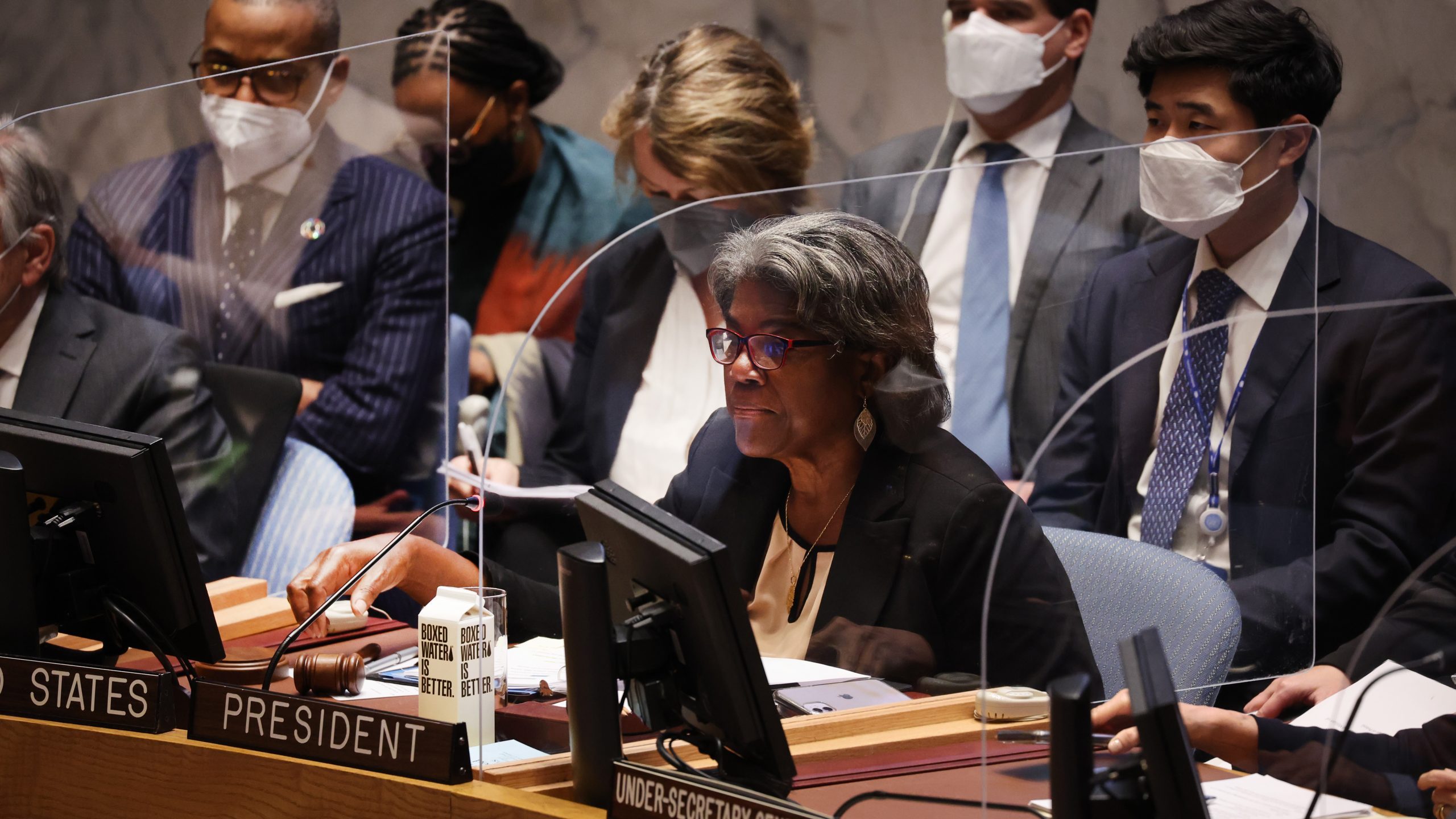Thank you to the European Union for hosting this vitally important pledging conference.
Today, I’m proud to announce that the United States will provide over $800 million in new humanitarian assistance to the Syrian people, the largest humanitarian assistance announcement the United States has ever made at the Brussels Conference.
This assistance demonstrates that, even as we work to address other conflicts around the world, the United States maintains our unshakable commitment to the Syrian people, their humanitarian needs, their call for accountability, and their aspirations for freedom and dignity.
And that is why I’m here from New York during our presidency of the UN Security Council to attend this important meeting. And that’s why I soon plan to make a second visit to the Syrian border at Bab al-Hawa – for the second time in just 12 months – to inspect the UN-supported cross-border mechanism. Our commitment to Syria is that strong, and this moment is that important.
The United States remains the world’s largest humanitarian donor to the Syrian people. We need others to step up and join us, to provide a fiscal demonstration of their commitment to the Syrian people and humanitarian aid in this time of dire need. After all, today, the humanitarian needs in Syria are greater than at any point since the conflict began.
We are particularly concerned about the impact of global food insecurity. Russia’s brutal war against Ukraine has led to an even more severe lack of wheat and fertilizer, raising serious concerns about looming food shortages and price hikes in the Middle East and Africa – and Syria is no exception. The World Food Program has already found cooking oil prices have increased 39 percent in Syria since the beginning of Russia’s war.
That’s why providing humanitarian aid to the Syrian people is especially important this year. And it is why, next week, Secretary of State Blinken and I will be bringing countries together in New York to take action on food security.
I’ve spoken with Syrian refugees whose greatest aspiration was to return to their homeland – to their families, to their schools, and to their communities and their careers. To live in peace. But tragically, after more than a decade of conflict, that peace and safety is not yet in sight. Which is why we must also reaffirm our commitment to UNHCR principles and that refugee returns to Syria must be voluntary, and they must be safe and dignified.
Last year in Jordan, I spoke with Syrian refugees, including one mother who had eleven children. She was doing everything she could do to keep her children together, to keep her family healthy, to provide them with education, and to create better opportunities for them. If she thought there was any chance for a better life for them back home in Syria, she would go. But as difficult as her life was, she knew it would be impossible to return home until the situation improved. The Assad regime has destroyed the food, healthcare, and life-sustaining services she and her family would need to rely on. Millions of others face exactly the same situation.
To me, their testimony is a demonstration of just how dire the situation is right now for the Syrian people. So it’s not enough to only fund the humanitarian responses for Syria. The international community must also ensure that the funding, and the live-saving goods it purchases, actually reaches those in need.
Last year, the UN Security Council unanimously voted to renew the mandate for the last remaining UN-facilitated humanitarian border crossing for another year. That has meant, for the past year, an average of 1,000 truckloads of assistance every month have gone through the border crossing to the Syrian people. This crossing has ensured that a life-saving supply of medicine, vaccines, and especially food can continue to flow.
Last year’s resolution also encouraged additional cross-line aid and early recovery programs, something the United States strongly supported. And I’m pleased to report that cross-line aid and early recovery projects have increased. But there is simply no way to meet the dire humanitarian needs on the ground in Syria without preserving and expanding cross-border access for humanitarian aid. Not only that, there is no way to replicate the efficiency, transparency, and accountability that the cross-border mechanism provides.
This July, we will urge the UN Security Council to not only renew the mandate for the cross-border mechanism, but to expand access to meet the soaring needs of millions of Syrians who have already suffered enough. And as I’ve said before: This is a matter of life and death.
Over the long term, we know that an enduring solution to the humanitarian crisis in Syria requires a political solution. And the United States will not provide reconstruction aid to Syria until we have seen substantial and irreversible political progress.
But in the meantime, we cannot allow the Syrian people to suffer and die unnecessarily. We must all step up and do our part. Today, I’m proud that the United States is doing just that. And we will continue to do everything in our power to ensure that this life-saving aid can reach the Syrian people in their time of need.
Thank you.


